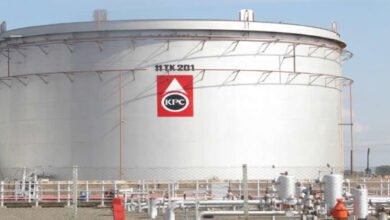
The National Government has allocated an additional Ksh.462 million to County Governments for the leasing of medical equipment.
This is in line with the National Treasury’s 2023 Budget Policy Statement (BPS) released this month.
It is a 12.7 percent increase from the Ksh.5.2 billion the Treasury had allocated in the current fiscal year.
In July last year, county bosses agreed to a three-year extension of the leasing of the medical deal. The deal was to expire in December last year.
The National Government has chosen to extend it to Ksh.100 million per county per year, which translates to Ksh.14.1 billion in three years.
Five firms were contracted by the state to lease specialised kits such as theatre equipment, renal kits, ICU equipment and radiology equipment to the counties for treating diseases like cancer and diabetes.
These firms are General Electric (GE), from the USA, Philips from the Netherlands, Bellco SGL from Italy, Esteem from India and Mindray Biomedical of china.
They were to earn a leasing fee of more than Ksh.5 billion annually over seven years, according to a report by Business Daily.
Governors have already asked contractors and suppliers of the Managed Equipment Services (MES) programme to reduce the price of the consumables and equipment downtime for servicing.
“We have suppliers leasing equipment for free and making their money on consumables, however, with the MES project, the leasing is already pricey and they are making a kill from consumables,” said Council of Governors Health Committee chairperson and Tharaka-Nithi Governor Muthomi Njuki Muthomi Njuki.
Whether MES is necessary for the counties and Kenyans, Governor Njuki said the machines had saved many lives.
“None of the counties can afford to buy the equipment by themselves, they are expensive and the only ask we have as we sign the agreement is the reduction in the pricing of commodities and the service time,” he added.
A report by the Association of Medical Engineering of Kenya (AMEK) released last month indicated that about 13 public hospitals that benefited from MES could not utilise their equipment.
The report indicated that the equipment remains idle due to a lack of personnel, lack of water, lack of three-phase power for X-ray machines and incomplete hospital buildings.
Last year’s audit on counties by the Auditor General, however, revealed shocking details on the status of leased medical equipment in various county public hospitals.
Though counties entered into a deal with the national government for the supply of specialised medical equipment five years ago, some counties were yet to receive their kits despite signing a Memorandum of Understanding and footing millions.





